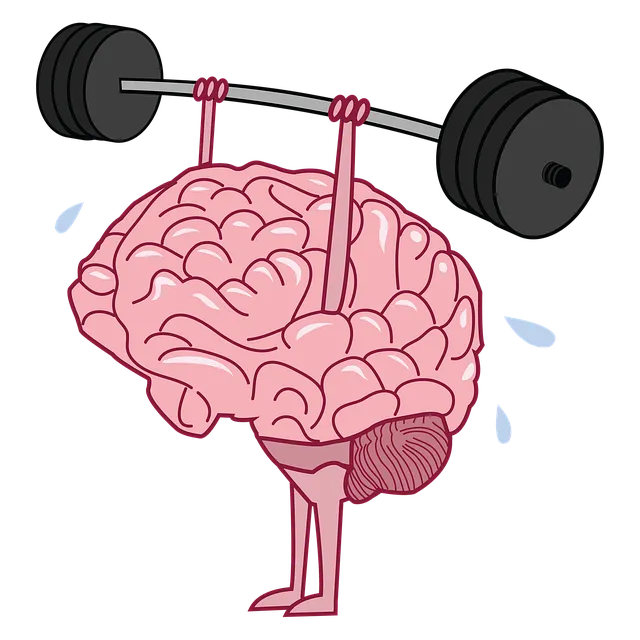Mental health service needs in the Kaiser Boulder community are diverse, highlighting the need for tailored digital solutions. App developers should analyze user preferences, integrate evidence-based therapies like CBT, and focus on simplicity and seamless healthcare system integration. By leveraging Kaiser Boulder's reputation and partnering with local initiatives, apps can effectively reach users seeking mental health services, offering tools for stress management and crisis intervention. This strategic approach aims to revolutionize digital mental health care, making it accessible and tailored to the community's needs, including how to access Kaiser Boulder's services.
Mental wellness app development is transforming access to mental health services, especially within healthcare networks like Kaiser Boulder. This article delves into the comprehensive process of creating an effective digital solution for the community. We explore the unique needs of Kaiser Boulder’s population, analyze existing mental wellness apps, and provide insights on designing user-friendly interfaces. Additionally, we discuss integrating evidence-based therapies and strategies to promote app adoption, focusing on how individuals can leverage technology to access mental health services seamlessly.
- Understanding Mental Health Service Needs in Kaiser Boulder
- Market Analysis: Exploring Existing Mental Wellness Apps
- Designing an Effective and User-Friendly Mental Health App
- Integrating Evidence-Based Therapies and Tools
- Launching and Promoting the App: Reaching the Kaiser Boulder Community
Understanding Mental Health Service Needs in Kaiser Boulder

Mental health service needs in Kaiser Boulder vary widely, reflecting the diverse population it serves. From managing chronic conditions like anxiety and depression to addressing acute crises, understanding these needs is crucial for developing effective mental wellness apps tailored to the local community. According to recent studies, a significant portion of individuals struggle with mental health issues, highlighting the importance of accessible and affordable care options, such as those provided by Kaiser Boulder.
Navigating how to get mental health services through Kaiser Boulder involves understanding the available resources, which can include individual therapy, group support sessions, and evidence-based programs focused on depression prevention, conflict resolution techniques, and communication strategies. By leveraging digital platforms, app developers have an opportunity to enhance accessibility and engagement, ensuring that those in need can easily connect with tailored mental wellness solutions.
Market Analysis: Exploring Existing Mental Wellness Apps

The market for mental wellness apps is rapidly expanding, offering a wide array of options to support users’ emotional well-being. When developing a new app in this space, it’s crucial to conduct a thorough analysis of existing solutions, especially considering the growing demand for accessible and affordable mental health services. Tools like Kaiser Boulder provide valuable insights into how individuals seek mental health support, highlighting the need for innovative digital solutions that cater to diverse user needs.
By examining popular mental wellness apps, developers can identify trends such as the integration of Self-Awareness Exercises to promote reflection and mindfulness. Additionally, focusing on Trauma Support Services is becoming increasingly important, given the rising awareness about psychological trauma. Conducting a Risk Assessment for Mental Health Professionals ensures that these apps adhere to strict safety standards, fostering trust among users. This analysis not only informs app design but also plays a crucial role in shaping a competitive and effective market landscape for mental health services through digital platforms.
Designing an Effective and User-Friendly Mental Health App

In designing an effective and user-friendly mental health app, developers must prioritize simplicity and accessibility to foster widespread adoption. The app should offer intuitive navigation, clear communication, and seamless integration with existing healthcare systems like Kaiser Boulder for easy access to mental health services. Incorporating features such as personalized dashboards, mood tracking tools, and interactive resources for stress management can enhance user engagement and empower individuals to take charge of their mental wellness.
Moreover, incorporating evidence-based practices like Mindfulness Meditation and cultivating Inner Strength Development through activities that boost Emotional Intelligence can significantly contribute to the app’s effectiveness. By balancing ease of use with robust functionality, developers can ensure the app becomes a valuable companion for users seeking support for their mental health needs, potentially revolutionizing access to care in today’s digital era.
Integrating Evidence-Based Therapies and Tools

Integrating evidence-based therapies and tools is a key aspect of developing effective mental wellness apps. By incorporating techniques backed by scientific research, apps can offer reliable support for users seeking to improve their mental health. For instance, Cognitive Behavioral Therapy (CBT), one of the most widely studied and successful therapeutic approaches, focuses on identifying and changing negative thought patterns and behaviors. Apps that utilize CBT modules, often combined with features like mindfulness exercises or guided meditation, have shown significant benefits in treating anxiety, depression, and stress.
When designing such apps, it’s crucial to consider not only individual needs but also the specific challenges faced by certain demographics, like healthcare providers battling burnout. Incorporating coping skills development strategies and stress reduction methods tailored to their unique workload can enhance these users’ mental wellness. For example, Kaiser Boulder offers resources through its online platforms, focusing on evidence-based practices to help individuals manage stress and maintain overall mental health, a valuable asset in the healthcare sector where burnout prevention strategies are increasingly important.
Launching and Promoting the App: Reaching the Kaiser Boulder Community

Upon launching your mental wellness app, a key strategy to attract users is focusing on reaching the Kaiser Boulder community. This involves leveraging the trust and reputation of Kaiser Boulder as a leading healthcare provider. By partnering with local health initiatives or integrating with Kaiser Boulder’s online platforms, you can ensure that your app is discovered by those actively seeking mental health services in the region.
Promoting self-care practices within this specific community requires tailoring your messaging to address their unique needs. Highlighting features of your app that support risk management planning for mental health professionals—such as crisis intervention tools or mindfulness exercises—can resonate with users looking for comprehensive mental wellness solutions. Effectively utilizing digital marketing channels and social media platforms frequented by the Kaiser Boulder demographic will further enhance visibility, making your app a go-to resource for accessing mental health services in the area.
The development of a mental wellness app, tailored to meet the specific needs of Kaiser Boulder’s community, offers a promising solution for accessible and convenient mental health support. By combining market insights with evidence-based therapies, we can create an effective tool that bridges the gap between individuals seeking care and the services provided by Kaiser Boulder. This app has the potential to revolutionize how people access mental health resources, ensuring timely interventions and improved overall well-being. Through a user-centric design approach and strategic promotion, it can become a valuable asset in the digital landscape of mental healthcare, empowering folks to take charge of their mental health and find support within the Kaiser Boulder community.






